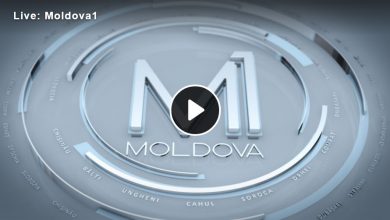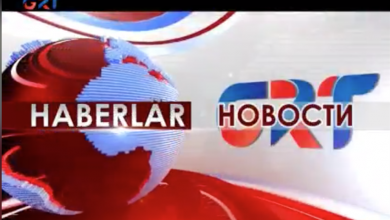How the Mechanism Which Prevents the Suspended TV Channels from Returning to Broadcasting Was Introduced: Explanations and Reactions

The new mechanism for suspending TV channels’ licenses was introduced by the Parliament after promoting a legislative amendment last November and December – it emerged in the public space on the New Year’s Eve. The deputies who promoted the initiative insist on the importance of “clear rules of the game” in the investment market, which is important for the state security. On the other hand, some jurists and experts consider that this amendment limits the right to free expression, and the principle of transparency was ignored while it was drafted.
On December 8 last year, Prime Minister Dorin Recean announced that TV channels whose licenses were suspended in 2022 and 2023 would not be able to broadcast in 2024 when the state of emergency established in the Republic of Moldova would expire. “Previously we said that the Government was preparing – and they are currently adopted – several legislative sets allowing the executive authority to manage such situations outside of the state of emergency. Hence, the 12 TV channels related to propaganda, illegal financing, and serving criminal groups will be unable to broadcast even after the state of emergency is over,” the prime minister claimed during a broadcast on Jurnal TV.
Shortly afterwards, Igor Grosu, President of the Parliament, also declared on ProTV Chisinau that the Parliament and the Government were “looking for solutions to keep the channels banned by the Commission for Exceptional Situations (CES) closed,” but also that there already were “legal solutions for several CES decisions, including those for closing the 12 TV channels.”
After the statements made by the two officials, it still remains unclear which legal solutions were exactly involved and which decisions were taken, and the journalists did not succeed in finding out more details. Later, on December 29, the information about a decision taken two days earlier became public: according to it, the six companies which owned the channels with suspended licenses were temporarily deprived of their permissive documents and no longer had the right to practice any activities on the market. The decision was made by the Council for Promoting Investment Projects of National Importance, according to the document sent to several media institutions.
HOW THIS DECISION WAS MADE
Already on November 10, 2023, a project on amending several normative acts was registered by the Parliament. It was aimed at “providing integrity and functionality of the electricity market.” The document promoted by the Ministry of Energy concerns transposition of a regulation of the European Union on integrity and transparency of the wholesale energy market, and the goals of the initiative include creating legal tools for intervention in case of dysfunction of the electricity market; this sphere obviously has nothing in common with the audiovisual media services’ activity.
The project was voted in the first reading on November 24, and on December 18, four days before it was adopted in the final reading, the PAS deputies Radu Marian and Virgiliu Paslariuc registered an amendment according to which several laws (the Law on Basic Principles of Regulating Entrepreneurial Activity, the Law on Regulating Entrepreneurial Activity by Authorization, and the Law on the Mechanism for Examining Investments Important for the State Security) were to be supplemented with the provisions allowing, among other things, to suspend and to annul permissive acts issued to legal entities for practicing activities in the spheres important for the state security.
According to the authors, the amendments in question were necessary “in the context of the need for additionally strengthening the regulatory framework for examining investments important for state security.” The deputies affirmed that information security and broadcasting audiovisual services were among the areas important for state security, according to the legislation, and in the context of the security crisis in the region and the Russian Federation’s hybrid war in relation to the Republic of Moldova, the suggested amendments would “ generate additional consolidation of the possibilities of prompt and efficient intervention by the authorities in charge in order to exclude any risks for the state security.” The two signatories further explained that, after the preliminary approval of an investment important for the state security, it is equally important to permanently monitor the investors acting in these sectors of activity because eventual changes in their situation could make them ineligible for investment approval.
The initial draft law, together with the relevant amendment, was adopted and promulgated on December 22 and published in the Monitorul Oficial (Official Gazette) the following day. A week later, the decision made by the Council for Promoting Investment Projects of National Importance, which directly resulted in prohibiting the TV channels to return to the screens, became known. Its justification included the same provisions introduced by the two deputies in their amendment.
In an edition of the Media Azi broadcast, Virgiliu Paslariuc specified that the established mechanism was “not intended for suspending TV channels, it is generally a mechanism for protecting investments important for national security.” In his explanations, he referred to the Law on Examining Investments Important for the State Security.
“For two years, we have been searching for solutions, trying to find a balance between fundamental freedoms and protecting our citizens. And for two years, we have had a law which establishes the mechanism in which all investments important for national security are regulated. The state intends to put things right: who are the investors in these spheres? Each prospective investor is supposed to address the state authority – the Council for Promoting Investment Projects of National Importance, which has existed since 2016 – and to obtain a permissive document. To do this, they have to file a set of documents to demonstrate that the investment is legal and transparent, to prove who the final beneficiaries are, etc. Upon examining the information, the commission can approve the preliminary request, reject it, or accept it conditionally. If the documents are not compliant enough to consider an investment to be safe, the Council can withdraw the economic entity’s right to practice its activity on the market. (…) We have only adjusted this law,” the PAS deputy said.
OBJECTIONS REGARDING THE ESTABLISHED MECHANISM
A number of non-governmental organizations issued a public statement criticizing both adopting the new mechanism for suspending the TV channels’ licenses and the lack of transparency in the process of drafting, voting, and implementing the new legal mechanism. The signatory NGOs affirm that suspending the broadcasting license is a profound interference with the right to free expression. “Until recently, the national legislation provided for forced suspension of a license only on the basis of a court statement, which was an additional guarantee that the authorities’ decisions were legal. The newly inserted legal mechanism provides that this Council has to decide whether to suspend licenses or, in certain situations, to withdraw them (…) in the absence of a court decision,” Cristina Durnea, the lawyer from the Independent Journalism Center, explains.
Media expert Ion Bunduchi, executive director of the Electronic Press Association, regards the fact that audiovisual investments are considered to be important for state security by the legislation as welcome. However, as to the Law on Examining Investments Important for the State Security, he remarks that the Council has not been functioning in the meantime, though, “by 2023, it was probably able to obtain enough evidence of illegal investments in certain TV channels, so that the state institutions could subsequently act accordingly.” “It is vitally necessary to protect the country’s security, including by protecting audiovisual informational security, which also implies restricting freedom of expression, which, as we know, is not limitless. It is vitally necessary to act in compliance with such democratic values as transparency, legality, and proportionality of sanctions. Neglecting democratic values can result in reprehensible abuses,” Ion Bunduchi concludes.
LACK OF PUBLIC CONSULTATIONS
The NGOs which signed the statement also insist on the fact that the suggested articles which emerged at the last moment were voted in the final reading, without organizing any public consultations. Nicolae Panfil, program director at the Promo-Lex Association, reminds that, as we consider ourselves to be a democratic state, complying with the requirements of decision-making transparency while adopting laws is mandatory.
“Several rules of the decision-making process were breached in this case, including the introduction of an amendment to a draft law which had a different scope of action and did not comply with the purpose announced in the draft, the lack of public consultations, approval ,and repeated expert assessment after the amendment of the concept of the project (Art. 32 para. (7) of Law No 100/2017), voting the project in the virtual absence of debates which lasted only for two minutes. The way in which such amendments were introduced, as well as the content of the standard which seems to be randomly interpreted and used for restricting the freedom of expression of the press makes us think that, for the current government, the end justifies the means. At the same time, the lack of communication from the legislative authority regarding the necessity and proportionality of the measures applied under the provision of expiration of the state of emergency, and guarantees against arbitrariness demonstrate that there is still a long way to go from statements about cooperation and actual eagerness to create civil society,” he says.
On the other hand, Virgiliu Paslariuc affirmed that the media sources targeted by the authorities’ decision “have nothing to do with freedom of expression, they are mere propaganda, they are meant to misinform and to change public opinion,” and that “not all amendments, as well as laws, necessarily require consultations. If we were to have consultations regarding every amendment, we wouldn’t be able to vote any law.”




